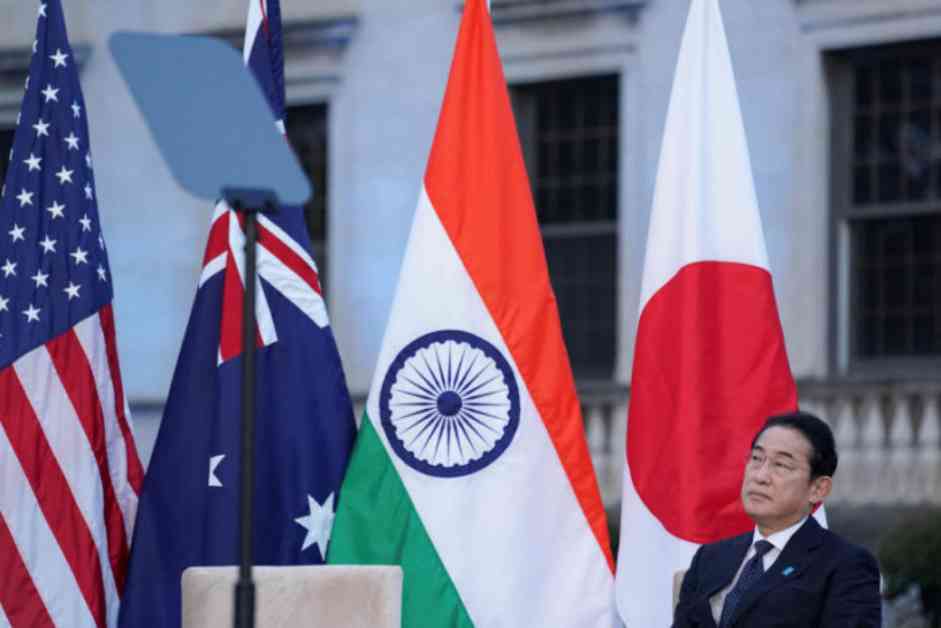**Russian Military Plane Violates Japanese Airspace: Escalating Tensions in the East**
In a concerning turn of events, Japan’s Defense Ministry reported on Monday that a Russian military aircraft had violated the country’s airspace multiple times. The incident, which took place over the Sea of Japan near Hokkaido’s Rebun Island, saw an IL-38 patrol plane crossing into Japanese territory on three separate occasions. The repeated intrusions prompted the Air Self-Defense Force (ASDF) to take action, with an ASDF fighter jet firing a signal flare as a warning – a significant escalation in response tactics.
**Mobilizing Defense: Japan’s Response to the Incursion**
Following the initial violation, ASDF F-15 and F-35 fighter jets were scrambled to intercept the Russian aircraft. Despite repeated warnings from Japanese authorities to vacate the airspace after the first breach, the IL-38 persisted in its incursions. It was only after the third violation that the ASDF resorted to firing a signal flare – a dramatic step intended to deter further infractions.
Japanese Prime Minister Fumio Kishida wasted no time in addressing the situation, instructing government officials to respond firmly and calmly to the airspace intrusion. He emphasized the importance of close collaboration with allied nations, particularly the United States, in managing the fallout from the incident. Chief Cabinet Secretary Yoshimasa Hayashi echoed this sentiment, labeling the violation as “extremely regrettable” and emphasizing Japan’s strong condemnation of Russia’s actions.
**International Ramifications: Implications for Regional Security**
The unauthorized entry of the Russian military plane into Japanese airspace comes at a time of heightened tensions in the region. This latest incident follows closely on the heels of a similar violation by a Chinese military spy plane in the East China Sea, signaling a growing pattern of aggressive behavior by neighboring countries. The presence of Chinese and Russian naval vessels sailing together through the Soya Strait further underscores the complex geopolitical dynamics at play in the Asia-Pacific region.
The deteriorating relations between Japan and Russia, exacerbated by Moscow’s invasion of Ukraine in 2022, have strained diplomatic ties between the two countries. Japan’s imposition of economic sanctions on Russia, in alignment with measures taken by the United States and other like-minded nations, reflects Tokyo’s firm stance against Russian aggression. The airspace violation serves as a stark reminder of the challenges posed by escalating military activities in the East.
**Ensuring Regional Stability: A Call for Restraint and Diplomacy**
In the face of mounting security concerns, it is imperative for all parties involved to exercise restraint and prioritize diplomatic solutions. The use of signal flares as a warning mechanism underscores the need for clear communication and de-escalation tactics to prevent further incidents from spiraling out of control. Japan’s firm but measured response to the airspace violation sets a precedent for how nations can uphold their territorial integrity while seeking to avoid unnecessary conflict.
As tensions continue to simmer in the Asia-Pacific region, the importance of multilateral cooperation and dialogue cannot be overstated. Japan’s close collaboration with the United States and other allied nations underscores the shared commitment to regional security and stability. By working together to address common security challenges, countries can foster a climate of trust and cooperation that mitigates the risk of miscalculation and conflict.
In conclusion, the airspace violation by a Russian military plane over Japanese territory serves as a sobering reminder of the complex security landscape in the Asia-Pacific region. As countries navigate the delicate balance of safeguarding their sovereignty while avoiding military escalation, the need for dialogue, de-escalation, and adherence to international norms becomes increasingly paramount. By upholding these principles, nations can work towards a more secure and stable future for all.




















